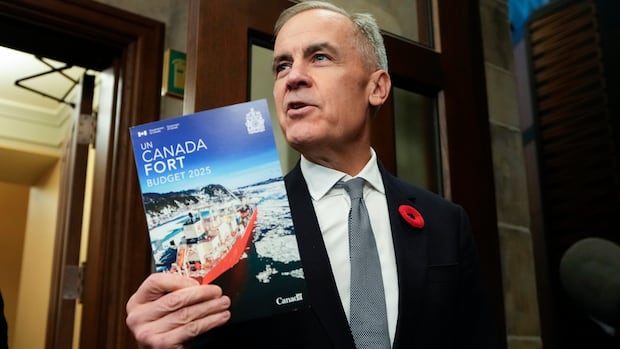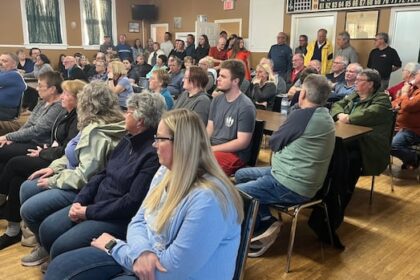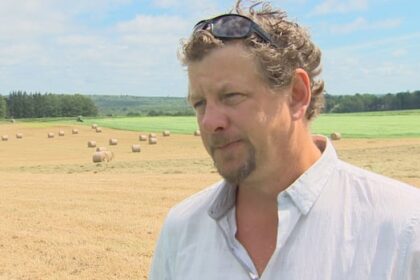IndigenousIndigenous leaders are concerned after this year’s federal budget left key reconciliation programs without guaranteed money beyond spring 2026. Programs covering education, health and urban Indigenous friendship centres are running out of money, prompting fears they could be terminated or face massive cuts.Education, health and urban Indigenous programs are running out of money, prompting fears about their futureBrett Forester · CBC News · Posted: Nov 05, 2025 6:09 PM EST | Last Updated: 1 hour agoListen to this articleEstimated 5 minutesPrime Minister Mark Carney holds up a copy of the budget as he enters the House of Commons for the tabling of the federal budget on Nov. 4, 2025. (Justin Tang/Canadian Press)Indigenous leaders are concerned after this year’s federal budget left key reconciliation programs without guaranteed money beyond spring 2026, prompting fears they could be terminated or face massive cuts.After Prime Minister Mark Carney’s minority Liberal government released its first budget on Tuesday, a chart from an annex titled “Indigenous Reconciliation,” listing federal actions since the fall 2024 economic statement, began circulating on social media.It shows the government has topped-up several critical programs — things like on-reserve education, First Nations and Inuit children’s wellness, emergency management and urban programming — for this year only. However, the many columns for future years showed zero after zero after zero.“I’m absolutely concerned,” said Assembly of First Nations National Chief Cindy Woodhouse Nepinak, when asked in an interview about the future of those programs.Woodhouse Nepinak said she was told these are so-called “sunset programs” — temporary initiatives with fixed funding or pre-determined end dates — that still need to be discussed. But the national chief vowed to seek answers immediately.“I am going to ask the Prime Minister’s Office today: What is exactly being cut?” said Woodhouse Nepinak, who advocates for more than 600 First Nations chiefs countrywide.Assembly of First Nations Chief Cindy Woodhouse Nepinak speaks during a news conference in Ottawa on July 16. (Spencer Colby/The Canadian Press)Meanwhile, President Natan Obed of Inuit Tapiriit Kanatami (ITK), the national representative organization for Inuit in Canada, was weighing similar concerns. The Inuit Child First Initiative, which ensures Inuit kids get equal access to essential services without delay, is slated to sunset in March and wasn’t promised any new money in the budget. That has Inuit considering legal options.“If we know that Inuit are not receiving equitable care and opportunity, there are legal ramifications that we can pursue,” Obed said in a phone interview.“We’ve been trying to do that outside of the courts and in good faith with this government, and we hope to still get to that point. But I hope that everyone would understand that we’ll fight for our children.”In an interview, Indigenous Services Minister Mandy Gull-Masty said the government wants to modernize the delivery of the sunsetting programs and align the intended outcomes with community desires, not terminate them.“I want to be clear: there are some things in this budget that it was misunderstood that it was a zero. That’s not the case. It’s about us identifying those outcomes,” she told CBC Indigenous.Another program set to expire in spring 2026 that got no new money in the budget is Urban Programming for Indigenous Peoples, which provides core operating cash for friendship centres in cities.Friendship centres help Indigenous people in areas like employment, housing, food security, childcare, youth programming and mental health, the National Association of Friendship Centres said in a post-budget media release.”These critical services are at risk,” the release warned.”The federal government is breaking the promise that it made to Indigenous people, to Indigenous communities, by cutting funding to the program,” added Sean Longboat, executive director Ontario Federation of Indigenous Friendship Centres.Mixed reviewsFor its part, the Manitoba Métis Federation welcomed the budget, and federation finance minister Anita Campbell dismissed the concerns about the future of these reconciliation programs. The budget lays out a plan for this fiscal year, and the chart in question shows those programs were continued this fiscal year, she said, adding that things can change quickly.”When we look at this, this really aligns with our priorities,” Campbell said of the budget in general.”We have shovel-ready products to go …. It plays to the strengths that we have as a government.”Others had mixed feelings or a lukewarm reaction to the budget overall. Should it pass in Parliament, the budget would limit spending cuts at Indigenous Services Canada (ISC) and Crown-Indigenous Relations and Northern Affairs Canada at two per cent. At ISC, that would translate into a cut of about $500 million per year. The two departments would have to cut about $2.3 billion by spring 2030 under that scheme.In new money, the main promises were $2.3 billion for safe water in First Nations, and $10.1 million for Indigenous consultations on major projects being fast-tracked through the regulatory process.Obed welcomed the cap on budget cuts and expressed cautious optimism about the new $1-billion Arctic Infrastructure Fund and the Carney government’s professed support for Inuit Nunangat University. But he also expressed deep concerns about the lack of money for tuberculosis elimination and the Inuit Child First Initiative.“We’ve been told that we can expect those items to be considered in the spring update, but that isn’t the way in which the federal government in the past has deliberated on these essential, equity and rights-based initiatives, and so those are really worrying trends.”Prime Minister Mark Carney gives opening remarks as Natan Obed, right, president of the Inuit Tapiriit Kanatami, listens during a meeting of the Inuit-Crown Partnership Committee, in Inuvik, N.W.T., on July 24, 2025. (Darryl Dyck/The Canadian Press)President Victoria Pruden of the Métis National Council, which represents Métis governments in Alberta and Ontario, said her organization is in “wait-and-see mode” on Carney’s major project- and infrastructure development-driven agenda.She too expressed cautious optimism about the cap on budget cuts at Indigenous departments tempered by some major concerns about Carney’s commitment to reconciliation.“The budget doesn’t reflect the depth of commitment that we’ve heard in certain moments over the past six to nine months,” she said. “And yeah, it is deeply concerning.”ABOUT THE AUTHORBrett Forester is a reporter with CBC Indigenous in Ottawa. He is a member of the Chippewas of Kettle and Stony Point First Nation in southern Ontario who previously worked as a journalist with the Aboriginal Peoples Television Network.
Thursday, 5 Feb 2026
Canada – The Illusion
Search
Have an existing account?
Sign In
© 2022 Foxiz News Network. Ruby Design Company. All Rights Reserved.
You May also Like
- More News:
- history
- Standing Bear Network
- John Gonzalez
- ᐊᔭᐦᑊ ayahp — It happened
- Creation
- Beneath the Water
- Olympic gold medal
- Jim Thorpe
- type O blood
- the bringer of life
- Raven
- Wás’agi
- NoiseCat
- 'Sugarcane'
- The rivers still sing
- ᑲᓂᐸᐏᐟ ᒪᐢᑿ
- ᐅᑳᐤ okâw — We remember
- ᐊᓂᓈᐯᐃᐧᐣ aninâpêwin — Truth
- This is what it means to be human.
- Nokoma











